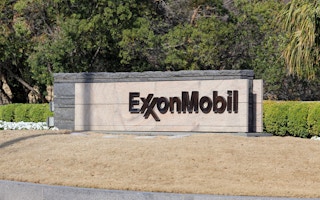Late last week, New York State decided to examine whether Exxon Mobil, the oil company, may have violated state consumer protection laws or the Martin Act, New York’s powerful shareholder-protection statute.
The Martin Act gives the New York Attorney General broad powers to combat financial fraud and makes any “fraud, deception, concealment, suppression or false pretense” by a public company illegal.
The Attorney General’s move follows an impressive eight months investigation by the Pulitzer Prize winning InsideClimate News. In it, the publication showed that as far as back as the 1970s, Exxon knew that most fossil fuels might have to be left in the ground. Exxon should have therefore disclosed the extent to which its revenues and profits were at risk. But Exxon didn’t - instead choosing to suppress this information and to engage in mis-information campaigns over several decades.
If the Attorney General can show that Exxon knowingly misled its investors by lying about potential risks it knew about, then serious financial consequences will follow. The evidence gathered by InsideClimate News should make his job relatively straightforward.
An earthquake starts with an initial rupture. That’s what the Attorney General just triggered. This nucleation will now propagate to the $150 trillion capital markets, the global financial system concerned with raising capital through shares, bonds, and other long-term investments.
In the capital markets, companies (such as Exxon) must ensure that material risks to their business are disclosed. Equally, investors (such as buyers of Exxon shares) have legal obligations to assess risks to ensure these are in line with their investment mandates.
For example, pension funds, which account for approximately twenty five per cent of the capital markets, are meant to invest with a long term horizon in order to provide retirement income to people some 40 years after they have started contributing money to them. A pension plan invested in Exxon (or BP, Shell and other fossil fuel companies) should therefore take into account the fact that climate change poses catastrophic risks to people and to assets, and price the material risks to its investments as the use of fossil fuels is inevitably limited.
But to this day, pension funds and the financial markets are for the most part sitting and waiting on the side lines, ignoring climate risks by hiding behind the flimsy excuse that they need governments to set a price on carbon first, before they are able to price climate risks into their investments.
“
To this day, pension funds and the financial markets are for the most part sitting and waiting on the side lines, ignoring climate risks by hiding behind the flimsy excuse that they need governments to set a price on carbon first.
This is a bizarre argument from sophisticated investors who don’t habitually wait on governments to price anything else for them (think political risks, sector and country risks, management team risks, foreign exchange risks, interest rate risks, etc.): The markets opine on, price, securitize, slice and trade every kind of risk - though incredibly, not climate risks.
This abandonment of even a pretence of their fiduciary duty to examine and price the genuine long term risks caused by the exploration and production of fossil fuels is now out in the open.
New York vs. Exxon is a “the emperor has no clothes” moment for the capital markets: They will accelerate the process of ensuring they are ascribing thoughtful risk primia to the long term exposure of their investments to climate change because otherwise, they will be found to have been derelict in their duty to invest prudently and lawsuits - on stronger grounds now that the New York Attorney General has moved - will follow.
This is not just relevant for investments in oil, gas and coal companies but applies across the board, wherever climate risks may be found.
As an example, take a real estate fund investing in Jakarta, Miami and Geneva. Currently, this fund isn’t taking into account the difference in climate risk between a building in Jakarta and Miami, both extremely vulnerable to sea level rise, and Geneva, which is not. When investors allocate capital to this real estate fund, they now must take into account the fact that its price should be based, in part, on its embedded climate risks. If they don’t, they will be liable to having acted negligently.
At the same time, the real estate fund will take note of New York vs. Exxon and begin focusing in its disclosures on telling investors what they are really buying. The investigation of Exxon Mobil is a game changer: It makes it abundantly clear that investment portfolios need to be consistent with keeping the climate safe, at a minimum by ensuring average global temperatures stay well below the 2 centigrade limit.
This is a loud warning of the coming earthquake: Pension funds and other long term investors will soon incorporate economic risks associated with climate change into their investment models thus shifting the entire $150 trillion capital markets towards a decarbonized economy.
Assaad Razzouk is chief executive, Sindicatum Sustainable Resources. This post was originally published on Huffington Post and is reproduced here with permission.


















